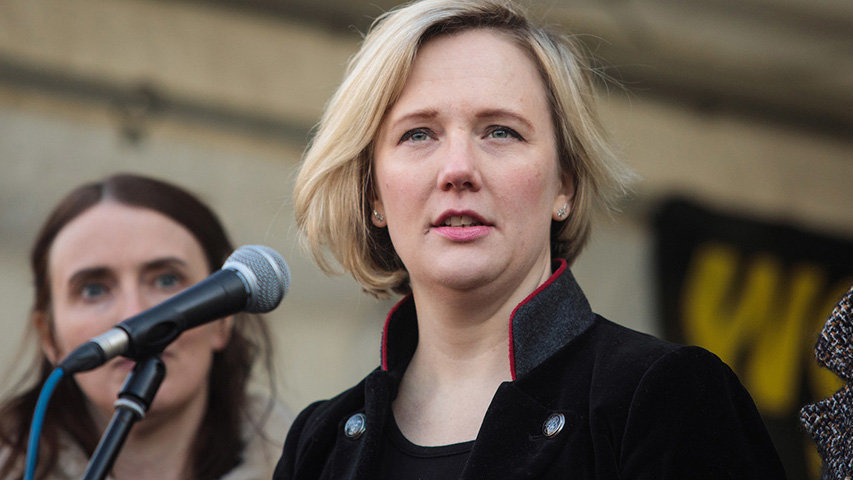
#PayMeToo Campaign to close the Gender Pay Gap
by Yash Saboo April 17 2018, 4:27 pm Estimated Reading Time: 3 mins, 0 secsApril 10th was Equal Pay Day, which marks the point in the year where women in the US have to work to catch up with what men earned last year. The median annual difference is about 20%, according to the US Census data.
A US court declared it was illegal for employers to use women’s prior salaries to justify paying women less than men. The decision may finally eliminate one of the last legal excuses employers have for pay discrimination, and it follows a number of states, cities and even companies that have prohibited hiring managers from asking about prior pay. As welcome as those developments are, and as important as it is for women and men to start at the same salaries, that’s not what’s behind the gender pay gap.

Source : thepool.com
The point being made does not only concern money. “Despite being a leader, I am still left off of important e-mails, left out of important decision-making processes, and left in the dark,” one woman wrote in a survey conducted by the Skimm. “When the group is together or a speaker is addressing us, they tend to only look towards the men—even with things as small as eye contact . . . the ‘boys’ club’ mentality is, unfortunately, still alive and thriving.”
You might think that there are just a few companies who treat women differently. Some companies do not come under surveillance just by the image they portray. I was shocked to learn about differences in pay at Google. In 2010, Kelly Ellis got the dream Silicon Valley job: a software engineering position at Google. So when she first noticed things at work that suggested she was earning less than her male colleagues, she wasn’t sure how to reconcile it with her idea of the company. “I think I just didn’t want to believe that Google could be evil,” she says in the latest episode of the Decrypted podcast.
Ellis left Google in 2014. In September 2017, she and two other women sued Alphabet Inc.’s Google for discrimination. They and a fourth plaintiff, added in January, alleging that Google pays women less than men for the same or similar work and puts women on career paths with lower pay ceilings. Google denied the allegations and said in a blog post last month that its analyses found no pay gap on the basis of gender or race—though its calculations excluded 11 percent of its workforce.
Men are comparatively clueless when it comes to recognizing these disparities, with 46 percent responding that men and women earn about the same. The prevalence of male leaders appears to perpetuate the cycle of gender inequality: while the vast majority of millennial men are comfortable discussing raises, promotions, and salary information with both male and female managers, most millennial women are more comfortable covering the same topics just with female managers.
A group of female MPs has joined forces to encourage women to hold their employers to account and demand action over the gender pay gap. Led by Labour MP for Walthamstow, Stella Creasy, MPs launched an online campaign called #PayMeToo, which aims to give working women advice on how to tackle the gender pay where they work.
It aims to ensure that women know they have the right to address pay issues at work, as well offering advice for what to do next, including working with trade unions and women’s networks.
Join the conversation, make your voices heard. #PayMeToo





-173X130.jpg)




-173X130.jpg)
-173X130.jpg)